Five minutes with The Classic Motorcycle Channel
Different people bring a huge variety of experiences and tastes to the world of classics, as Footman James discovers talking to three of the presenters of The Classic Motorcycle Channel.
Set up in October 2020 by Alex Rollings, who is Director of the fast-growing YouTube channel, it now has a number of presenters. Alongside Alex, they include Dave Mitchell and John Oakes, and bikes such as the Footman James-sponsored 1983 Yamaha IT490K restoration ably demonstrate how anyone can take on a two-wheeled project - whether your passion is wrenching, restoring, or riding.
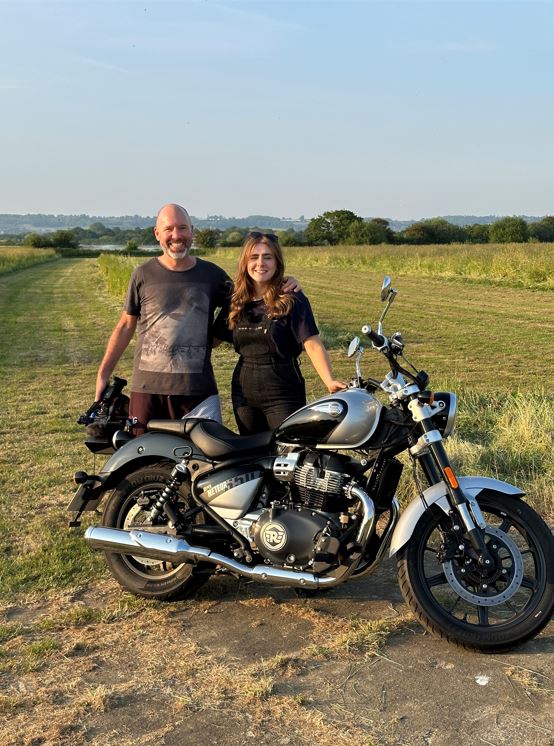
Image: Alex and Bry one of the collaborators
Alex is the driving, or riding, force behind The Classic Motorcycle Channel, filming and editing all of the content. He’s aware of the different groups that are interested in classic bikes and says: “The longer videos usually appeal to older enthusiasts, while the shorter ones attract a younger audience. We’re very motivated to bring in younger people to the world of classic motorcycles, but not at the expense of existing fans. That’s one of the challenges for us, and where projects like the Yamaha IT490K restoration work as this type of bike has a broad appeal.”
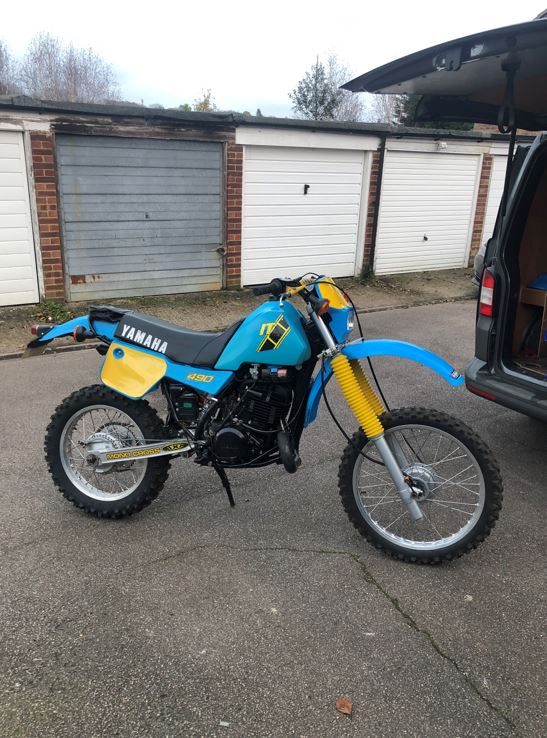
Image: The 1983 Yamaha IT490 project bike
That wide appeal has seen the channel’s subscriber numbers grow to more than 190,000 since it started. There are also 108,000 followers on Instagram, 130,000 on Facebook, and proving the younger enthusiasts are out there the channel has more than 280,000 followers on TikTok.
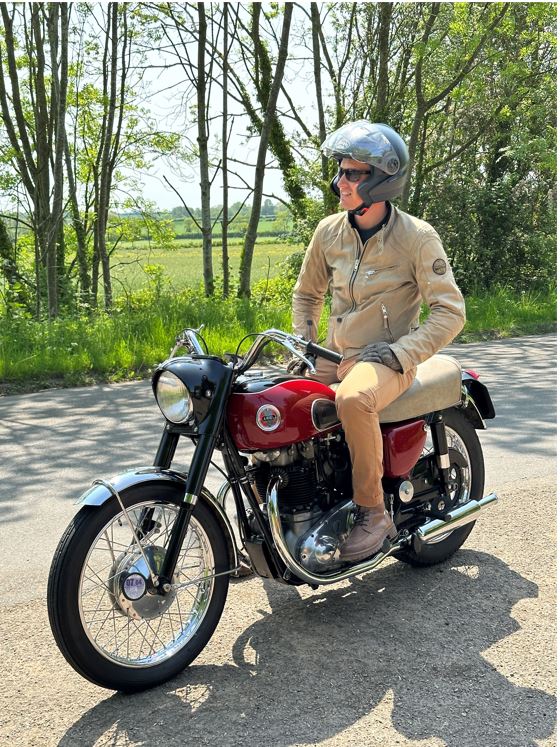
Image: John riding a bike
John and Dave’s paths into the world of classic motorcycles both started at a young age, and they are keen to see today’s young enthusiasts discover the same love of machinery and riding as they have. John says: “I got into bikes when I was just two-years old when my Dad bought my first one. It was a minimoto and I loved it, though it was sold on years ago. However, I was at the Isle of Man races recently and bumped into a guy who was chatting about a minimoto he’d bought. It turned out he had the same bike I had when I was kid – not just the same make and model, but the exact bike. I love the way motorcycles weave our lives together, which is why I got back into them a few years ago and enjoy The Classic Motorcycle Channel so much.”
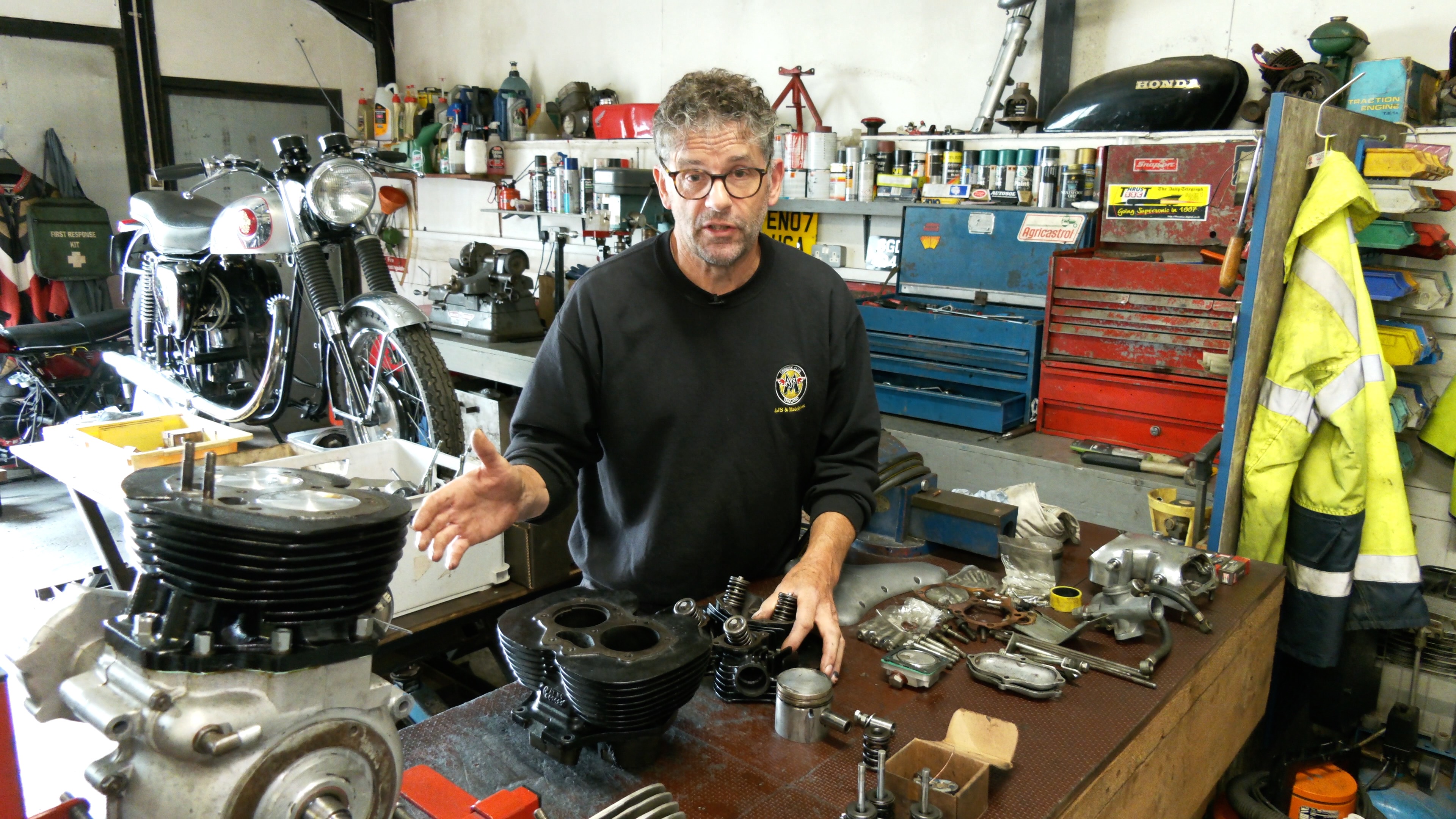
Image: Dave in the workshop
It was a little later in life when Dave discovered his love of motorcycles. At the ripe old age of 14 he started to ride and fix bikes, and this has developed into a lifelong dedication to working on them. This led Dave to set up his own restoration firm, Mitchell’s Classics, and showing viewers on the channel what he’s restoring and servicing in his workshop.
“It can be anything and everything,” says Dave. “The main thing is doing the job right. Some of the bikes we show in the videos have been badly fixed in the past and we film it warts and all because this is the sort of thing you’re going to get if you buy a bike to work on. I also want to prove to anyone they can fix up a classic bike to use and have huge fun with. It doesn’t have to be a concours restoration or exactly as it left the factory gates – just get it running right and safely, and get out there.”
Dave firmly believes this approach is key to attracting younger fans to the classic motorcycle world: “Bikes are often a lot more affordable to buy and work on than classic cars, so they’re great for younger people who are usually on a much tighter budget. You can also store a motorcycle more easily so you don’t need a garage to work on one. Also, it doesn’t bother me if people modify their bikes to suit their own tastes – it’s what motorcyclists have been doing from the very start to make them faster, more comfortable, or just more individual.”
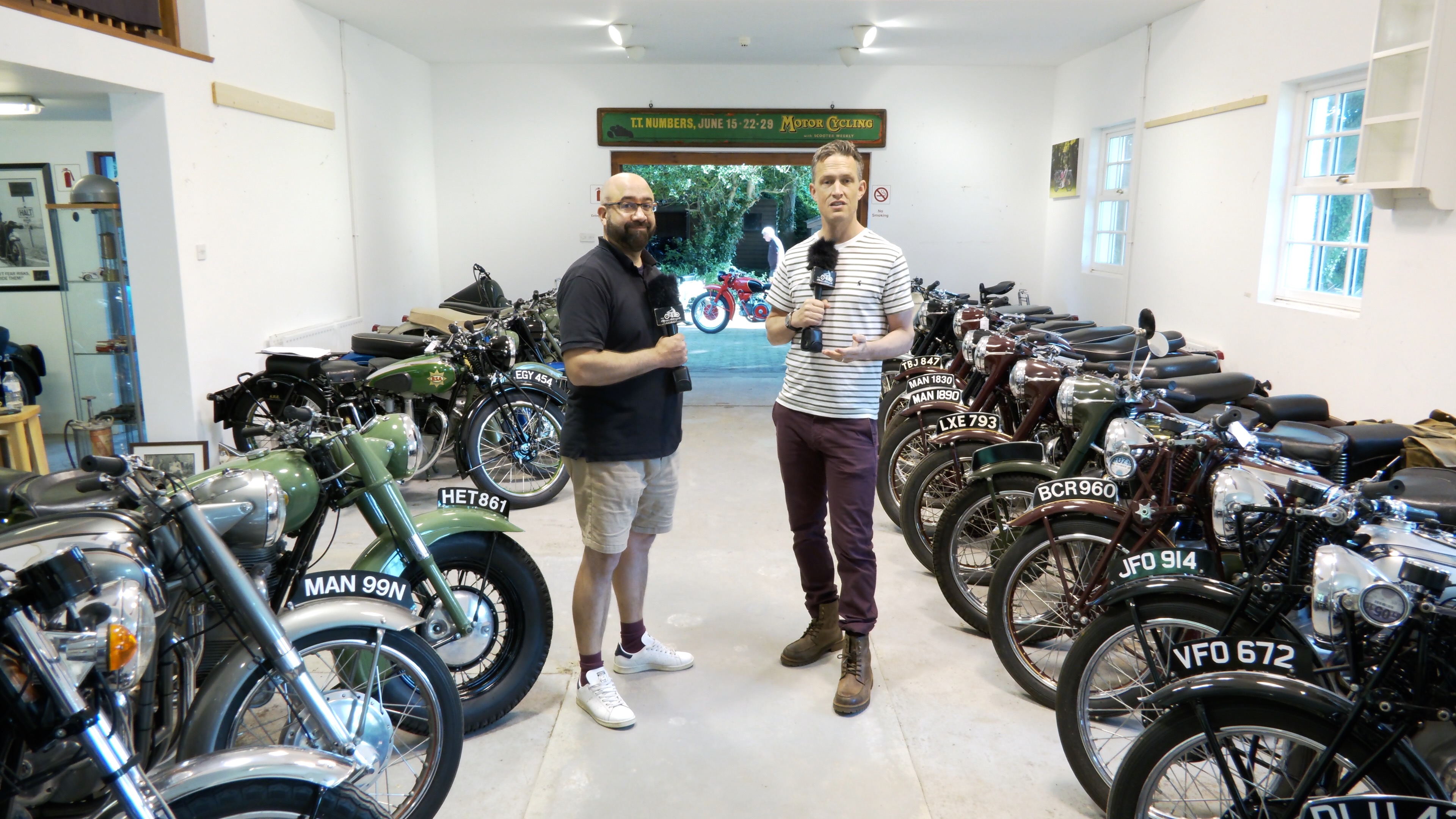
Image: John and Ben Walker from Bonhams profiling a collection in the Isle of Man
As the world of classics evolves and changes to fit in with the modern world, John and Dave both believe motorcycling has a bit of catching up to do compared to the classic car scene. John says: “Classic bikes are on the cusp of something new. A lot of the people who own and restore the bikes are a bit older, but we’re seeing more young people become interested and involved. The café racer scene has helped with this and opened up a lot of people’s understanding of classic bikes. What we’re trying to do with The Classic Motorcycle Channel is demonstrate there’s nothing to fear when working on these bikes – they are only nuts and bolts at the end of the day.”
There’s also more to learn than just making a motorcycle work properly reckons Dave: “Working on old bikes, or cars, teaches you so many skills and two of the most important are being patient and gentle. When something isn’t working or coming apart as you’d expect, just walk away and have a cup of tea or leave till the next morning. Usually, you come back with fresh eyes and see what it is that you missed the day before. We live in a world that wants everything now, but that’s not often the case and there’s something very satisfying about learning how a machine comes apart and goes back together again when you take the time to do it. And at the end, you have a brilliant motorcycle to ride.”
Both of these presenters love getting out on their bikes and sampling motorcycles whenever they can. When Footman James spoke to Dave, he’d been out the evening before on a BSA, while John is in the enviable position of looking after a collection of desirable Vincent bikes that he has gathered together for a collector. As well as the joy of being out on a warm summer evening and getting the best from a classic motorcycle, both Dave and John also love the social side of this shared passion. “Everyone has a story when they ride a motorcycle,” says Dave. “It doesn’t matter what type of bike you ride or work on, we all love swapping tales of our favourite roads, the best places to stop for a cuppa, the bikes we’ve owned or want to have next. There’s always something to chat about and it doesn’t matter what bike you ride, we’re all motorcyclists.”
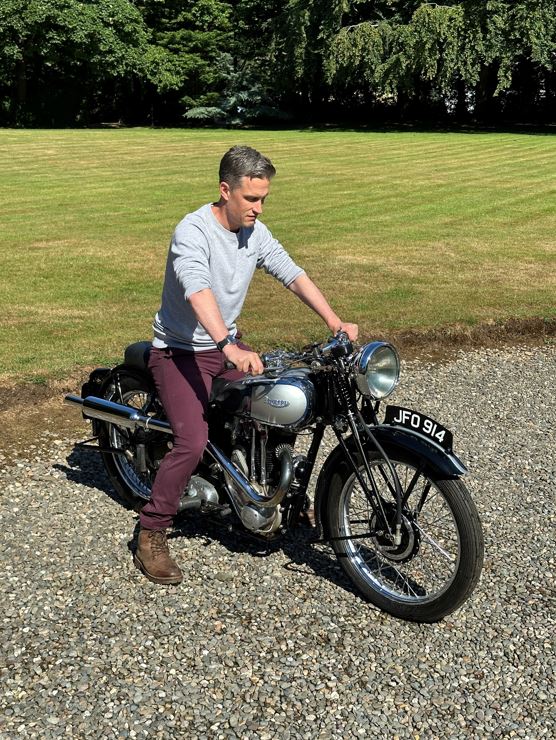
Image: John on another bike
John echoes that when he says: “My real passion is pre-war motorcycles and I’m keen to get more people interested in them. You can only do that by showing the bikes off when you ride them and chatting to others when you stop. These are not museum exhibits – they’re working machines and that’s what we’re showing on The Classic Motorcycle Channel that you don’t need to wrap them up in cotton wool or choose a rare, expensive bike. Anyone can get a motorcycle, get it working, and enjoy it every bit as much as we do.”
Want to find out more? Watch the Classic Motorcycle Channel on YouTube here.

COMMENT